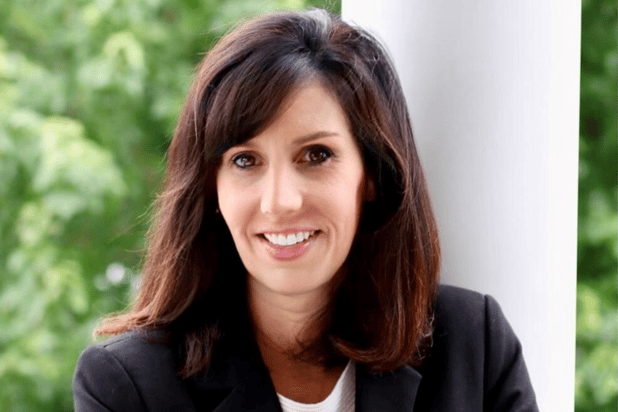

Stepping forward, and taking time for yourself, are not selfish actions.
In fact, they can be an important step forward in your career and your life.
Kim Auchstetter has seen working women hold back when they knew their brief inside and out – and admits she has not always made herself a priority.
The Chicago area executive vice president at Arthur J. Gallagher (Gallagher) will be one of four panellists, speaking on the topic of “Chart your insurance career path,” at the Women in Insurance Summit at the W Chicago City Center Hotel on May 11.
Even though then event is sold out, you can still find out more at https://chicago.ibwomenininsurance.com
This is not Auchstetter’s first speaking engagement. In fact, it is the sixth engagement she has done specifically talking to women in the work world. As recently as this past March, she took part in a women’s panel sponsored by AIG.
“I like speaking about this and I love hearing other people’s stories as well,” she said, speaking on speaker phone as she inched her way through Chicagoland traffic on a Friday afternoon, having arrived on a flight at O’Hare airport.
She has been in the industry for 34 years, and she continues to be surprised by the limits some women place on themselves.
“There’s a voice behind a lot of them that says they have to be number two, or, they have to be working behind the man and they have to do all the technical and intellectual capital behind the presentation,” she said.
Even as she provided them with mentoring, it was a tough mindset to break.
“They don’t have the confidence to say, ‘I should be the one in the room commanding the room, commanding the presentation, and being number one,’” she said. So she would coach them to ask themselves: “Why not? Why not you? Why shouldn’t you be talking through all the items that you put together? Nobody knows this better than you.”
Even with that encouragement, she acknowledges that for some women taking such a role “is not in their DNA, and that’s fine too,” but that other women can work their confidence up to take it on. “Everybody is a little bit different. I would say some of it is going to be confidence in themselves, and I think you can encourage people to put themselves out there and take risks and feel a little uncomfortable once in a while. People always want that familiar feeling and people feel comfortable in what they know.”
Stepping outside of that involves a lot of risk and discomfort.
“They are afraid if something goes wrong,” she said. “It’s okay if something goes wrong, because you learn from things when they go wrong. So it’s okay to fail.”
There are other issues at play, such as cultural background. Auchstetter attended an all-girls school, but on a school day off, she went with some friends to sit on classes at the local public school. Even at that age, she was able to “realize the difference between how women in the classroom were reacting with having males in the classroom versus being in an all-girl education setting,” she said. She learned a lot from the all-female environment, seeing women succeed apart from male competition at a formative time in life.
Another challenge for women in the workplace is the work/life balance. Auchstetter has four children, very close in age.
“When they were little, I felt guilty because I worked full time and I basically had time for work and family and that was it,” she recalled. “I didn’t do a lot of things socially. I worked and I did things with my family. And I felt guilty if I did anything else.”
But she listened to other working women who told her she needed to make the time.
“I thought that people were being selfish in taking time away from their family,” she said. “But I took a step back and I think I learned that it’s okay to have time to yourself. You’ll be a better employee, a better mom, a better wife.”
Balancing her life out a bit more meant that she was not “running myself crazy, trying to be all things in two different spaces,” she said.
She is looking forward to the panel, having met up with her fellow panellists to talk out who will say what, who feels that a particular issue is most relevant to them, etc.
“We’ve all got our own different topics that we want to stress and talk about to the group that we feel are important,” she said.
